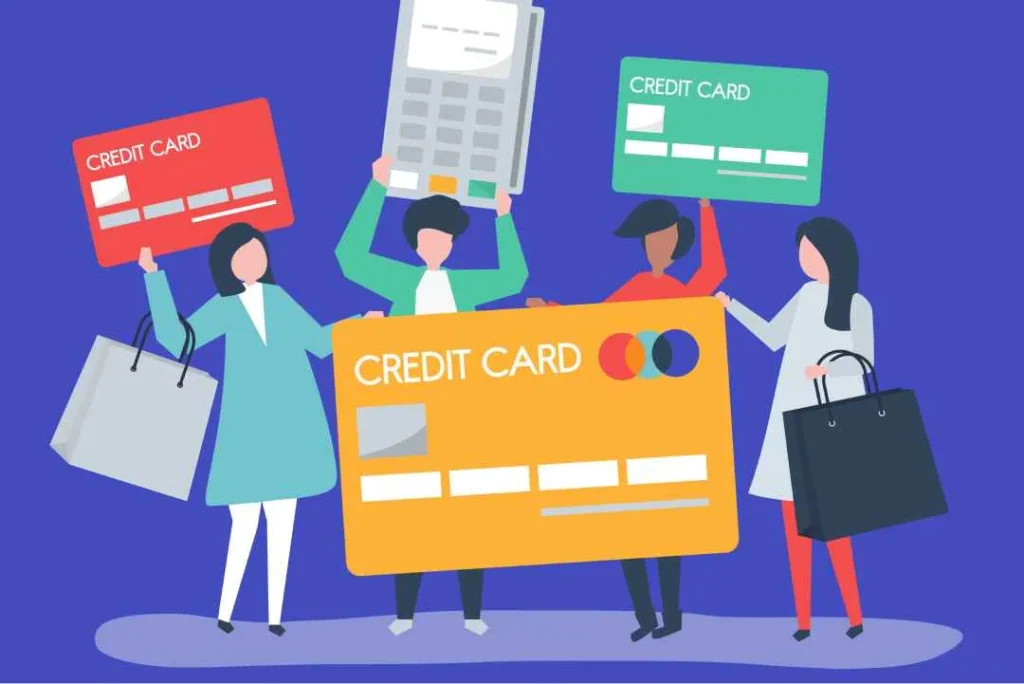
Quick Overview
For Instant credit card approval requires a few steps. To start, learn about your financial situation by looking at your credit report and credit score. Next, evaluate several credit card options in terms of fees, rewards, rewards programs, and interest rates. Make sure you fulfill the prerequisites for acceptance, taking into account things like your salary and credit history. Examine and comprehend the terms and conditions of the selected card in full before applying.
Lastly, confirm that you are accountable for managing your credit card debt and that you are financially prepared. Avoiding unscrupulous lenders, having a reliable source of income, and being of legal age are all important factors. Some advice is to start with a secured credit card to establish a credit history, disclose household income, and look into student offers.
Using a credit card, you can get a loan right away. A strong credit card is an important part of a sound financial plan, even though credit card interest rates and fees might be high. It might not be obvious how to obtain one if you have never had one before. Continue reading to find out more about obtaining your first credit card.
How these Steps help you to get instant Credit cards Approval
Credit cards are now a necessary tool for managing finances, making transactions, and establishing credit in this digital age. It can be intimidating for novices to navigate the world of credit cards, though. This post seeks to offer a thorough walkthrough of the seven easy procedures involved in getting credit cards approval quickly.
Step 1: Determine Your Credit Rating
It is important to be aware of your financial situation before applying for a credit card. To begin with, look up your credit score. This is important since it affects both your eligibility for credit cards and the terms that are provided to you. You can evaluate your creditworthiness by obtaining free access to your credit report from websites such as Credit Karma or AnnualCreditReport.com.
Step 2: Examine Various Credit Card Types
Different sorts of credit cards are available to suit different demands and lifestyles. Spend some time investigating and contrasting other choices, including secured cards, cashback cards, and rewards cards. When selecting the best credit card for you, take into account things like promotional offers, annual fees, interest rates, and rewards programs.
Step 3: Establish Your Qualifications
After deciding on the kind of credit card you want, evaluate your eligibility by taking a look at your income, credit score, and financial history. Pre-qualification tools are offered by certain credit card issuers, which let you assess your chances of approval without having an impact on your credit score. You may prevent needless queries and rejections with this technique, which can help you raise your credit score.
Step 4: Compile the Information and Documents You Need
To speed up the application process, gather all the necessary paperwork before submitting a credit card application. Personal information like your social security number, proof of income, job details, and any other supporting documents the card issuer may require are usually included in this.
Step 5: Apply in person or online
It’s time to send in your credit card application now that your paperwork is prepared. Applying online is straightforward and can be done from the comfort of your home with many issuers. As an alternative, you can apply in person by going to a bank or credit union branch. To prevent delays or rejections, make sure you include correct information and double-check your application before submitting it.
Step 6: Await authorization
The credit card provider will check your information and determine your creditworthiness after you submit your application. Depending on the issuer and the kind of card you applied for, approval times can differ. While some candidates might be approved right away, others might have to wait a few days for a response. Throughout this process, exercise patience and refrain from applying for more than one card at once, as this can lower your credit score.
Step 7: Make Your Card Active and Use It Sensibly
Your credit card will be mailed to you after it has been approved. As directed by the issuer, activate it and begin using it sensibly. To create a good credit history, don’t forget to make your full or part payment of your current credit card on time, maintain a low credit use rate, and refrain from overspending. To remain on top of your finances, keep a close eye on the activity in your accounts and make use of tools like mobile banking and autopay.
It doesn’t have to be difficult to get authorized for a credit card if you follow these seven easy procedures. By evaluating your credit score, considering your options, and applying thoughtfully, you may improve your chances of being approved right away and begin taking advantage of having a credit card. Keep in mind that responsible credit card use will help you lay a solid financial foundation for the future.
Frequently Asked Questions
If I have no credit history, can I still be approved for a credit card?
Several credit card issuers provide alternatives like secured or student credit cards for people with little or no credit history.
Will my credit score suffer if I apply for many credit cards at once?
Indeed, applying for several credit cards in a short amount of time can lower your credit score by resulting in several hard inquiries.
If my application for a credit card is rejected, what should I do?
If the issuer denies your application, go over their stated reasons and focus on enhancing your creditworthiness before reapplying.
How long does it take to use a credit card to establish a decent credit score?
It takes time and appropriate credit use to establish a decent credit score. Over time, you can raise your credit score by consistently paying your bills on time and maintaining a low credit utilization rate.
Do you have any credit-building options other than standard credit cards?
Indeed, alternatives such as authorized user accounts and credit-builder loans can also assist people in building or enhancing their credit history.


